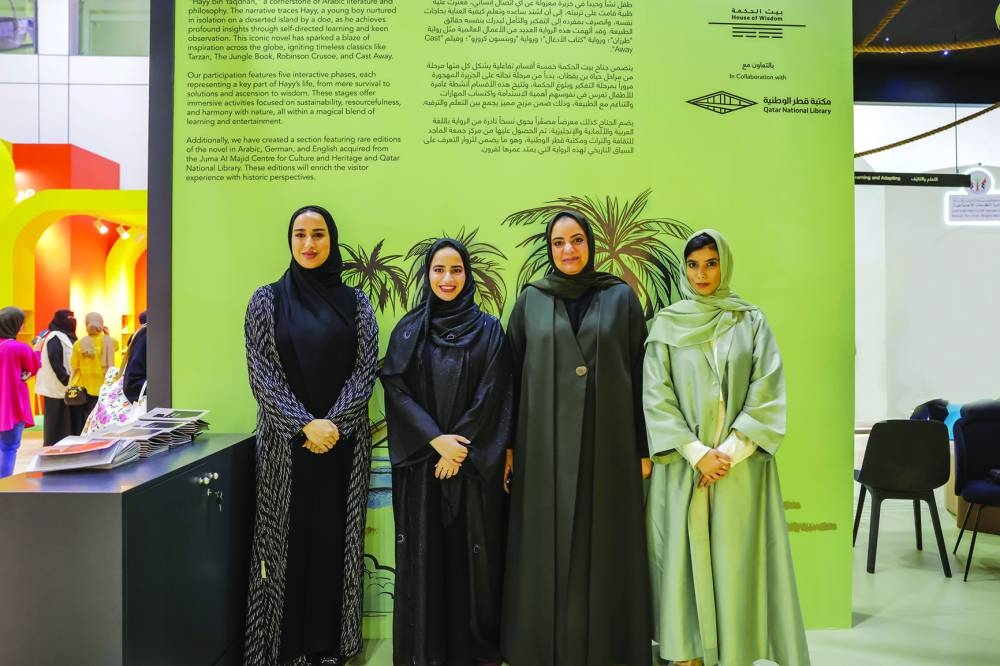Qatar National Library (QNL) and House of Wisdom (HoW) in Sharjah joined efforts at the 15th Sharjah Children’s Reading Festival to nurture critical thinking among youth.
Under the theme of ‘Hayy bin Yaqdhan: A Journey of Enlightenment,” QNL and HoW hosted an immersive booth introducing children and young adults to a cornerstone of Arabic literature penned by Andalusian philosopher Ibn Tufayl.
The experience took young visitors on a journey of self-discovery through five interactive stations, each embodying a key theme from the story of Hayy, a young boy raised in isolation on a deserted island by a doe.
The booth, which attracted a large turnout, was visited by Sheikh Dr Sultan bin Muhammad al-Qasimi, Supreme Council Member and Ruler of Sharjah, and Sheikha Bodour bint Sultan al-Qasimi, chairperson of Sharjah Book Authority.
Huism Tan, executive director, QNL said that through its collaboration with HoW, QNL is advancing its mission of creating an exceptional environment for learning and discovery. ”Since its foundation, the Library has strived to enhance engagement with Arab literature and promote personal development, which lies at the core of its participation in the Sharjah Children Reading Festival.”
HoW executive director Marwa al-Aqroubi explained "Hayy bin Yaqdhan fosters critical thinking, research, and deductive reasoning in young readers, drawing from Arab and Islamic heritage. The story showcases a contemplative child who, solely through intellect, unravels life's mysteries, inspiring children to see the world differently, engage in research, and realize their potential. It cultivates thoughtfulness, analysis, and independence in young minds, shaping their characters."
Fatema al-Malki, Project Manager at Qatar Reads, said: “We are happy to collaborate with House of Wisdom and honoured to participate for the first time in the Sharjah Children’s Reading Festival to highlight our shared Arabic and Islamic heritage, a priority for us in the world of publishing.”
The booth hosted a mini exhibition featuring rare copies of the novel in Arabic, English, German, and French. The copies were obtained from QNL and from the private collections of the Juma Al-Majid Centre for Culture and Heritage. The oldest copy of Ibn Tufayl’s novel dates back to the year 1721 CE.

QNL takes part in Sharjah Children's Reading Festival
